“Everyone loves a revolutionary. But no one wants someone of their own to put their life on the line,” Rambabu Tiwari deduced this early on in life. Thirteen years ago, when he, as a Class 12 student, set out on a quest to tackle Bundelkhand’s water woes, he never assumed that this decision would shape the trajectory of his life and career.
Nor did he expect his work to earn him a mention in the Prime Minister’s radio programme ‘Mann Ki Baat’ (27 June 2021).
But, the 30-year-old “water hero” — a moniker that he has been bestowed with by the villagers of Adhawan in Bundelkhand — emphasises that recognitions and accolades come secondary.
So what fuels his drive?
The answer lies in the way Tiwari’s eyes light up each monsoon as the rains grace his village, filling up the rural ponds that had lain barren for years. Watching them spring to life is all the validation he needs.
But, achieving the feat hasn’t been easy, he shares, adding that sometimes the stubborn climate posed hurdles — relentless heat waves in Uttar Pradesh with temperatures touching 45 degrees Celsius would cause the water bodies to run dry — while other times, it was his friends and family who were against his plans.
But Tiwari has remained unfazed. And his stoicism was eventually met with success.
In this chat with him, we explore how this PhD student’s model of reviving water bodies could well be a gold standard for India’s rural landscape that is struggling with water problems in the face of changing climate.
As precious as gold
The nursery rhymes we grew up hearing are rooted in our memories. Likewise for Tiwari and the children of his village; albeit the rhymes were slightly different. Veering away from the popular ones, these verses emphasised the crucial importance of water in the village.
Dhaura tera paanee gajab kari jae,
gagaree (matakee) na phootai, khasam (pati) maree jae.
Translating these lines, and underscoring their meaning, Tiwari notes, “It [the rhyme] originated centuries ago when the women of the village would walk for miles to fetch water from a certain pond. The water was considered so prized and expensive that the women would often pray to God to not let the matkas (mud pots) crack and tell Him that He could take away their husbands instead.”
The rhyme, though morbid, encapsulates the pedestal on which water was put in the village.
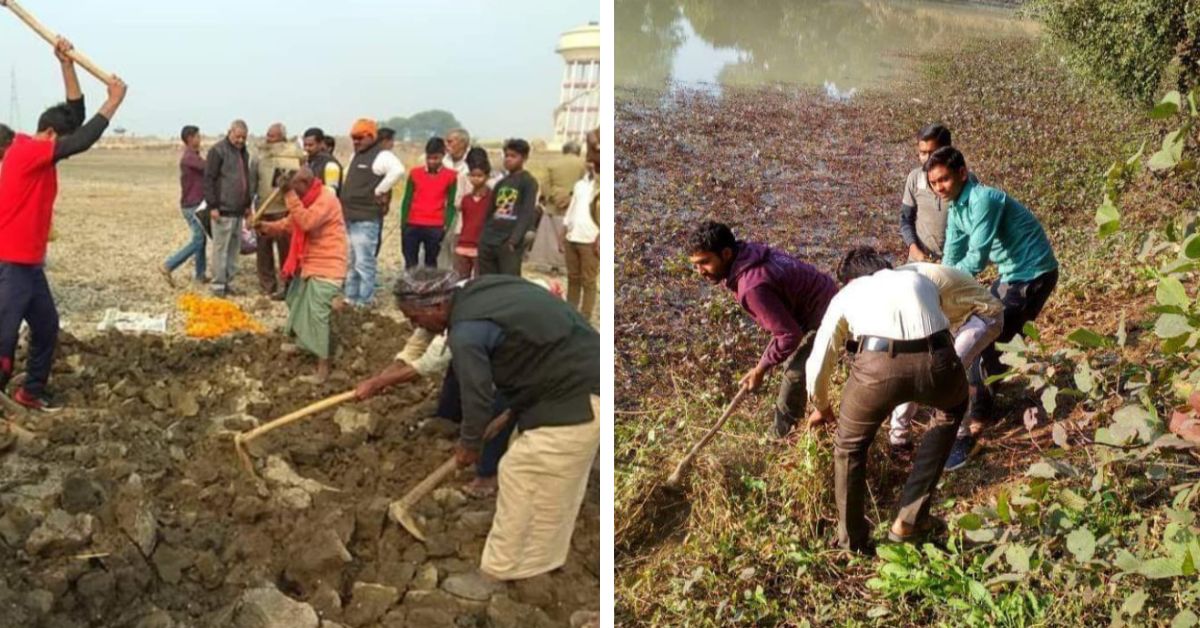
Tiwari’s earliest memories involve being scolded for accidentally breaking a pot or two while playing around the house with his friends. “Each drop was considered to be gold,” he explains.
This owes to the complex relationship that Bundelkhand has had with water. The region — which was once interspersed with thick forests — is now characteristic of bare, hilly terrain. And as a report by the National Institute of Disaster Management (2014) suggests, the droughts are to blame for this.
The report concluded that severe drought have sharply increased in the last 30 years in Bundelkhand. “The records from the Government show a spell of one drought in 16 years during the 18th and 19th centuries in Bundelkhand. From 1968 to 1992, the region saw a drought every five years. However in the 21st century, the region has already suffered seven years of drought,” it stated.
In light of this, conserving water was second nature for Tiwari. But these ideals tended to get blurred when he moved to Allahabad for further studies in 2012.
A bathroom of his own; showers for baths; unlimited water supply and no one having to walk miles to fetch it, introduced Tiwari to a whole new world. He couldn’t believe his luck. But while the initial weeks of this “fantasy life” pushed all thoughts of water scarcity out of his mind, weekend visits back home did not allow him to forget about his village’s woes.
He began to draw parallels.
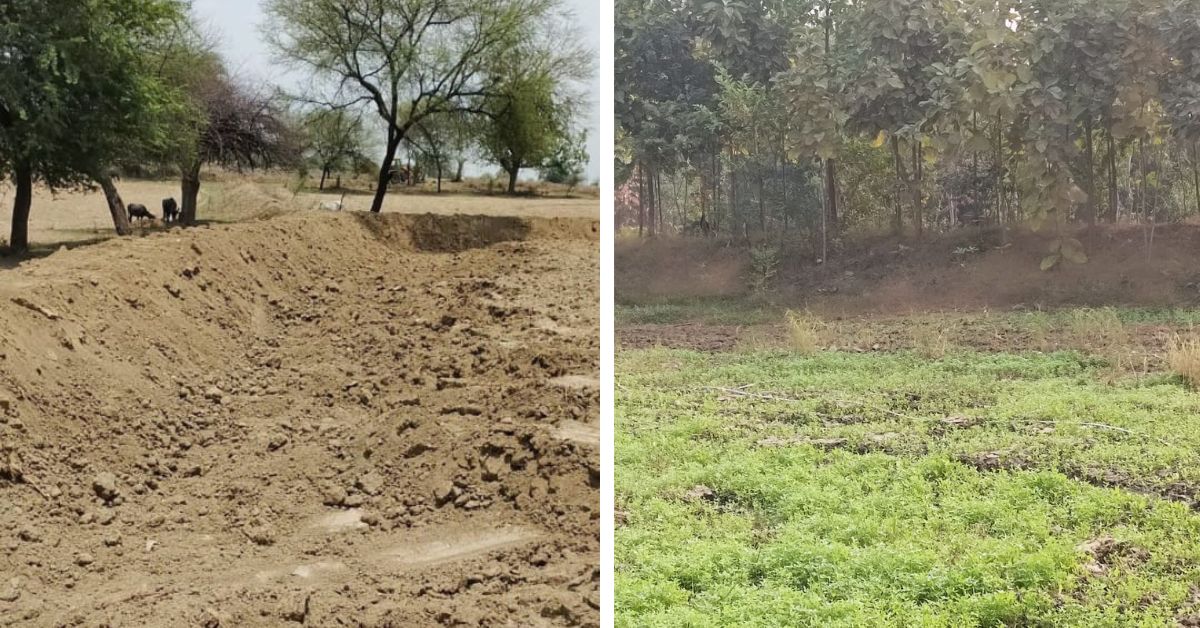
“While having a shower bath one day, I thought of how the amount of water I was consuming was equal (if not more) to the amount that my entire family would consume in a day. I thought of my mother back home who would walk for hours in the morning and evening to fetch 20 buckets of water for the family’s needs. It did not feel right to waste water this way,” he shares.
A student of environmental studies, Tiwari also felt a moral obligation to not let sustainable lessons be limited to a textbook, but instead to put them to practice. And that day, a man with a vision was born.
But his initial efforts to rally against water wastage were met with taunts. “If there is a water issue in Bundelkahnd, go do something there,” he was told by his batchmates whom he appealed to opt for bucket baths in contrast to the shower. Reluctant to give up, Tiwari continued to oppose the shower system in the hostel, and he notes how, in time, the water wastage was brought down significantly by 40 percent.
But, the battle wasn’t over. He then set his sights on his hometown.
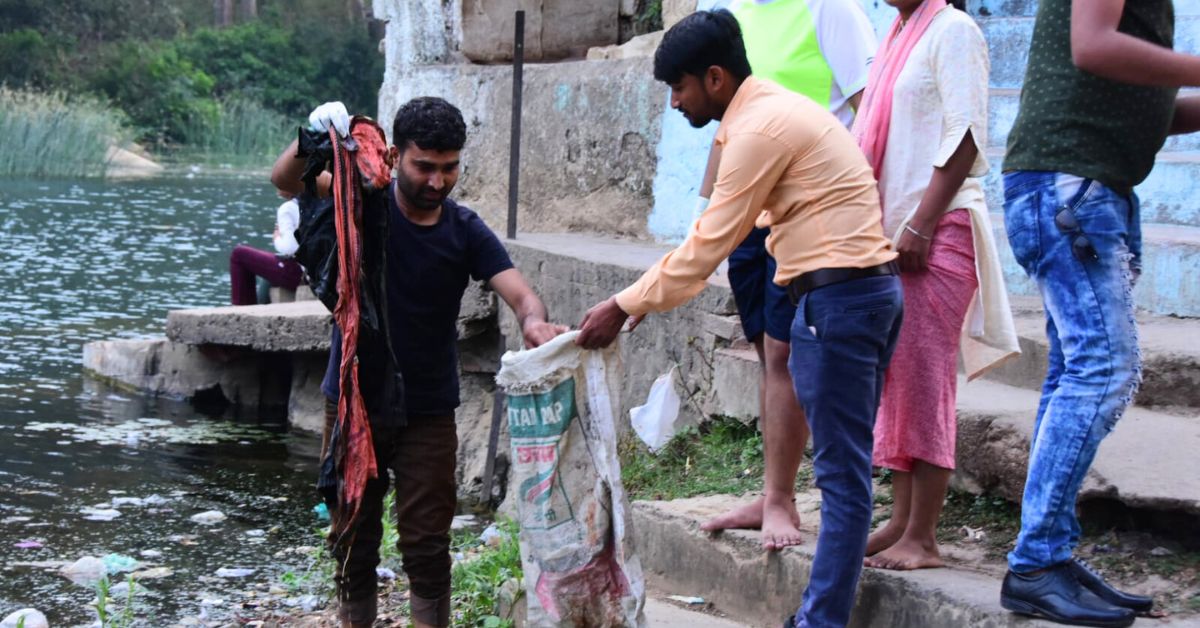
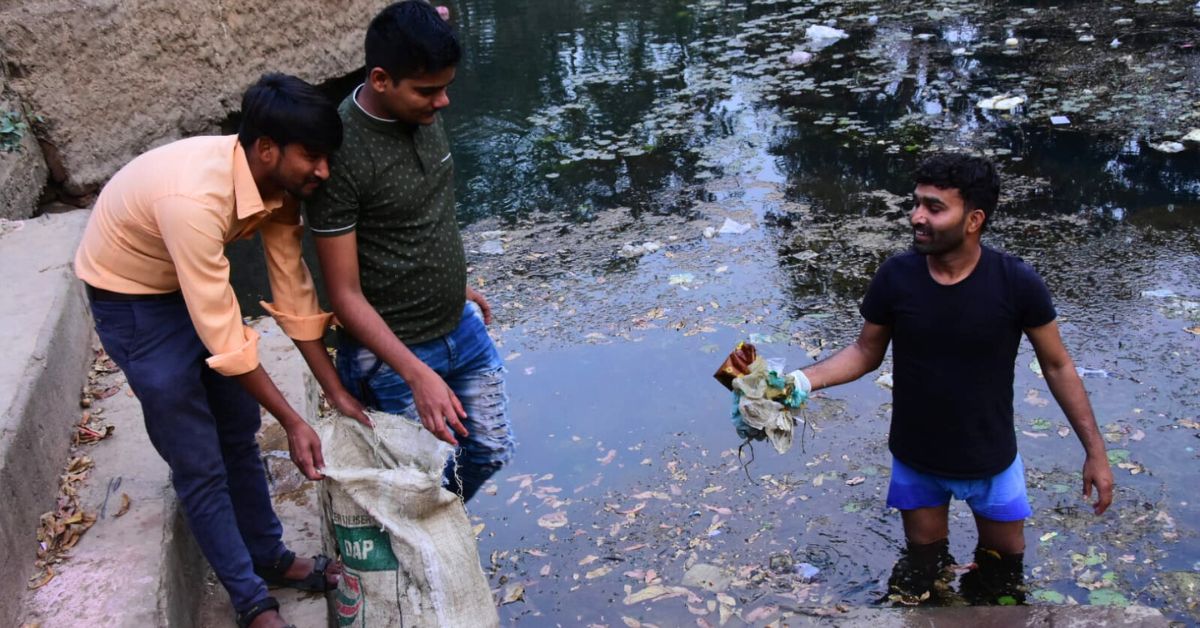
A plan to change the landscape of Bundelkhand
Conceiving change in a region that had almost succumbed to acute drought was a challenge, Tiwari points out. Moreover, because the villagers had lost hope. The young graduate’s plan was simple. He would return home every weekend from Allahabad where he was studying, and mobilise the people of his village to desilt the ponds.
“I observed that the ponds had a great capacity, but because they were choked with silt, their water accumulation capacity had gone down. So, even during the monsoons, the entire pond could not be filled. Come January every year, we faced water shortage again,” he informs.
Elaborating on the story of the first pond of focus ‘Bajrang Sagar’, a pond with an 11 bigha (a traditional unit to measure the area of a plot of land; 1 bigha = ⅓ to 1 acre) capacity, he says, “This is one of the major water bodies in the village and situated right near Hanuman Mandir. When I would call people to desilt the pond initially, they weren’t ready. So, I decided to keep prayers at the mandir (temple) and people started coming in hordes.”
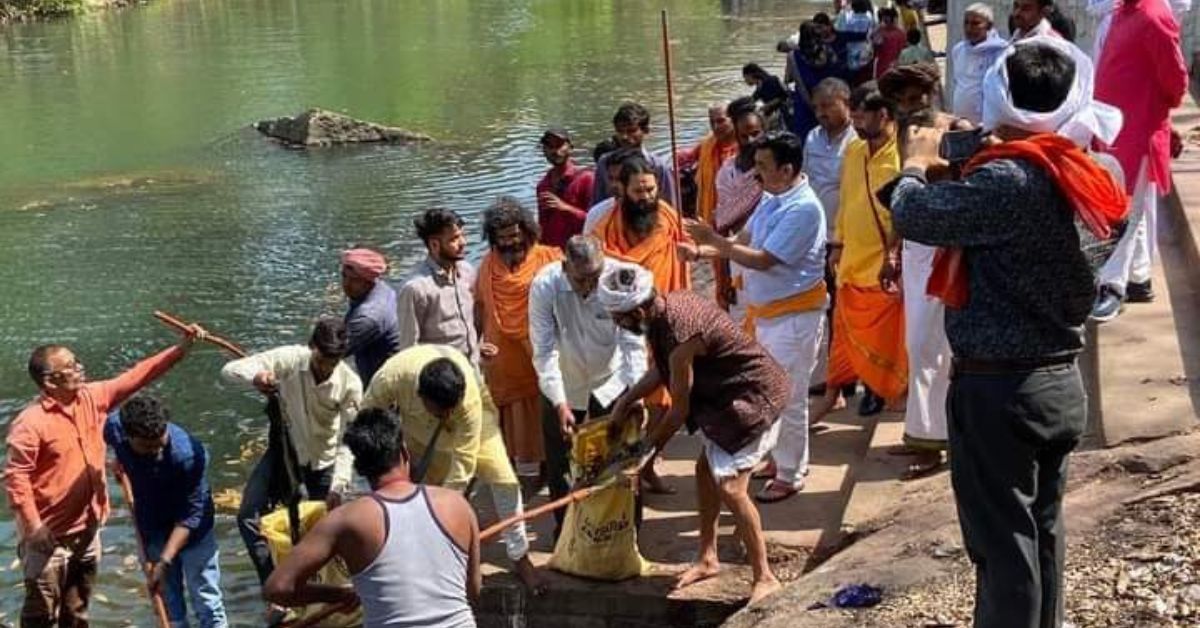
Tiwari and a few chosen friends began explaining the importance of desilting the pond to the devotees who had gathered. That day, before prasada (food and water offered to devotees) was distributed, the crowd pulled up their sleeves and began digging the silt away.
“People began seeing the job as manual labour that they were offering to God,” Tiwari explains. “In time, more and more people began coming for this weekly effort. It took eight weeks, with us digging for 24 hours every Monday, for the pond to be completely cleared.”
He points out that there was no compulsion or compensation.
The monsoon of 2015 was phenomenal for the village of Adhawan which stood stunned as the pond filled up to its 11 bigha capacity. “The water quantity was so much that farmers could even use it for their irrigation needs, aside from people using the water for their home and personal needs,” Tiwari adds.
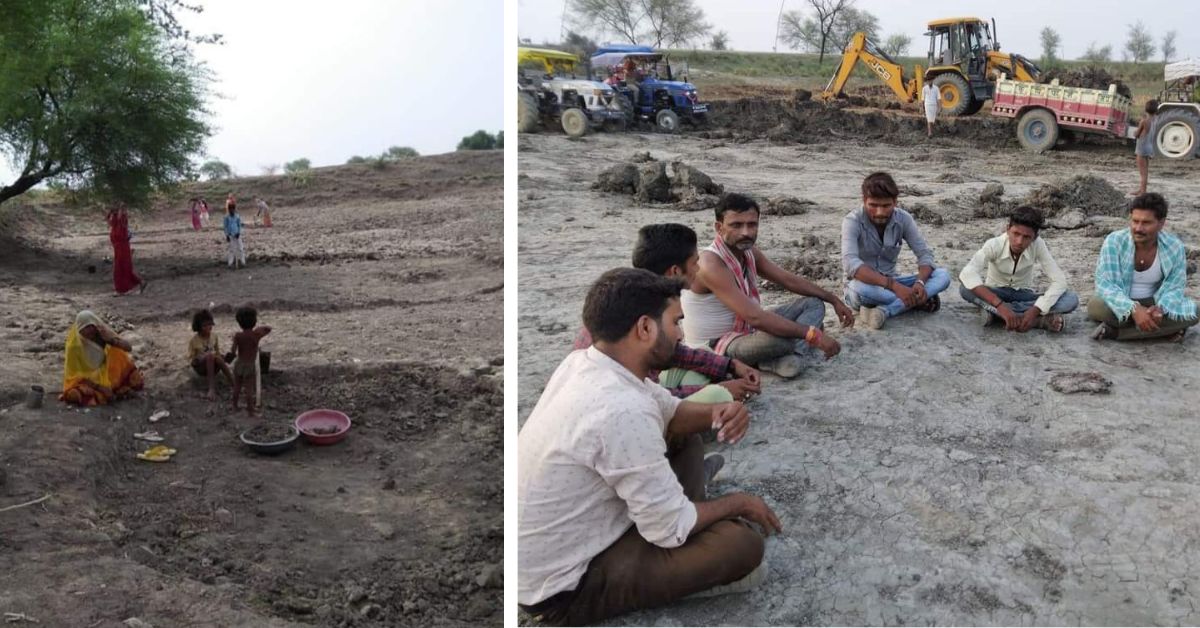
As in the case of any village, Adhawan was witnessing migration. People couldn’t see a reason to live in a drought-prone region anymore, Tiwari explains. “Four to five families had moved from the village and found jobs as security guards and drivers in Delhi and Pune. But when they heard about the success of the pond revival, they started making plans to return,” he says.
Dismantling social constructs was exciting for Tiwari and his team.
A crux on which their water project had been founded was ‘Gaav ka paani gaav mein, khet ka paani khet mein (The water of the village should remain in the village, and the water of the fields should be restricted to the fields.) To ensure this, he says, “We started desilting many ponds around Bundelkhand across the villages of Marka, Pindaran, Gahbra, Jhalokhar, Mohnipur among others. We also started building troughs of two feet height around every field so that the rainwater could collect in this and be used for farming purposes even after the monsoons.”
Tiwari and his team also organised paani chaupals (water awareness sessions) where they challenged the villagers to question their water usage, and water-saving techniques. “We conducted over 300 of these,” Tiwari adds.
“We also started making water friends who we call ‘jal mitras’.” Sharing more about this concept, he says, “Their work is to focus on their respective villages, research water bodies and their capacities, work with tank management committees to see which ponds can be revived and create awareness about water conservation.”
Today, Tiwari has a network of 5,000 water friends across Bundelkhand. “I will not be around forever. I wanted to ensure that my work continues even if I can’t,” he smiles.
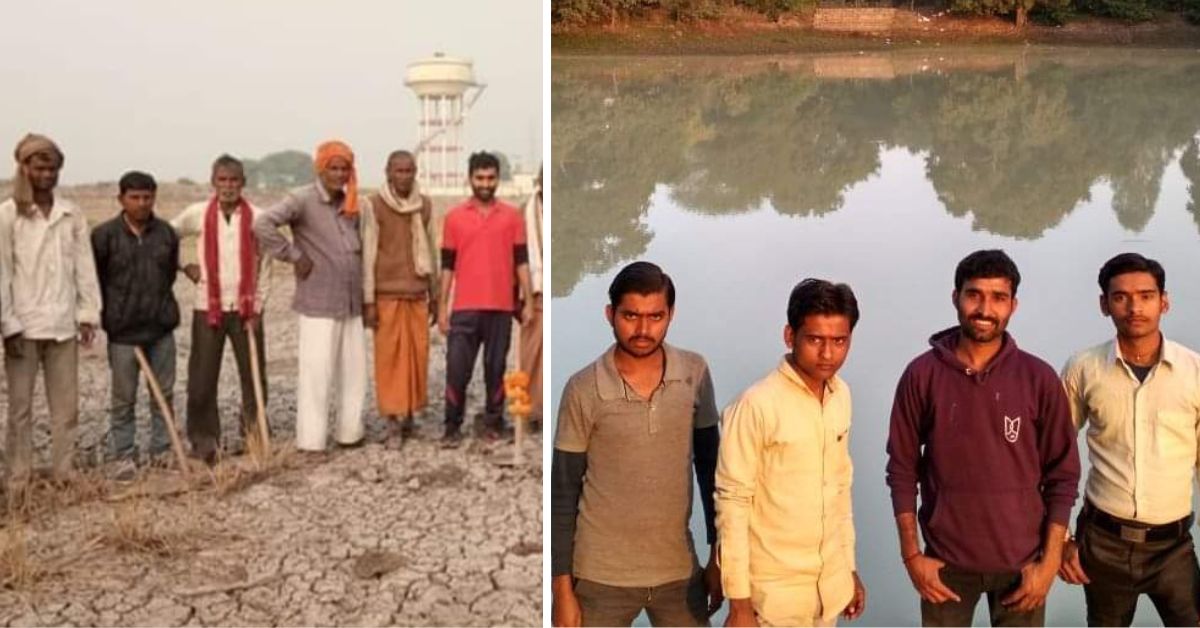
Powering through opposition
Tiwari emphasises that getting acceptance of an idea is just one of the rungs of the ladder. But as you continue to ascend it, he says, conflict is inevitable.
“If you set out to do any positive work, there are three stages you will have to pass. The first is ridicule, where people will tell you to ‘take your nonsense somewhere else’, or make fun of your dreams,” Tiwari notes. Having been on the receiving end of this from his batchmates and friends, he says the only solution to it is to firm your resolve.
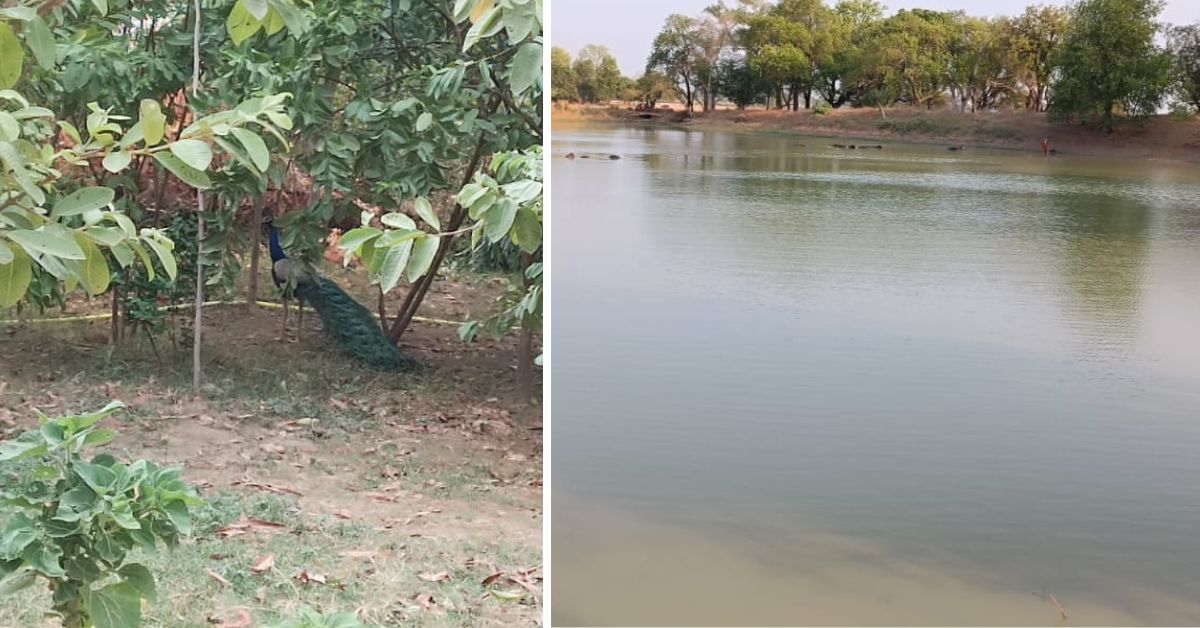
The second stage is opposition. “This comes from your own family, most often,” he points out. “I still remember how my mother wasn’t keen that I undertake the work I wanted to. She knew the importance of what I was trying to do but tried to coax me that digging wells was for the Government to do. And that I, her son, should have bigger dreams.”
Tiwari was also met with opposition by the villagers, who were under the impression that his work had ulterior motives. “Many of the villagers thought I wanted to become sarpanch (the village head) or procure money from NGOs and that’s why I was doing this. People refused to believe that I was doing it because I wanted to help them,” he shares.
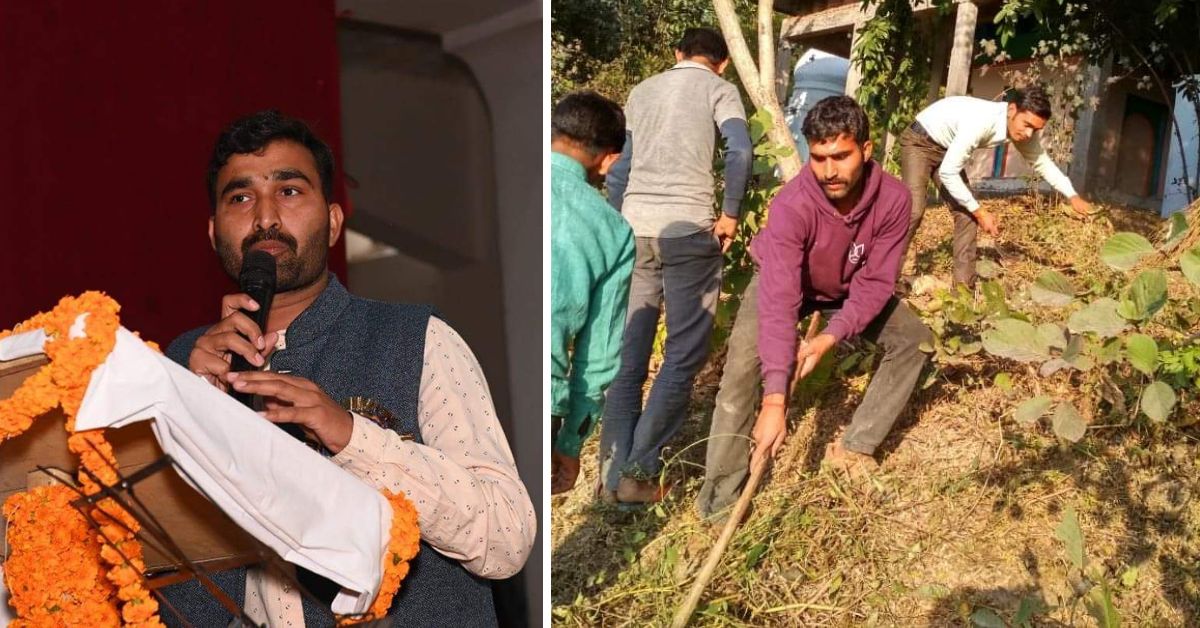
And finally, he says, the third stage is solidarity. “But you will get to this stage only if you persist through the other two.” Today, Tiwari has lost count of the number of rural ponds he and his team have revived — “definitely more than 75”, he tells me — but he says his story is steeped in learnings.
But one learning shadows the rest. “If you believe in something, go after it,” Tiwari concludes.
Edited by Pranita Bhat
No comments:
Post a Comment